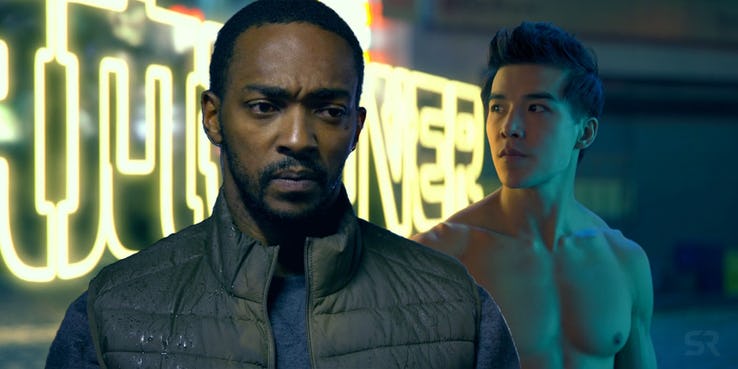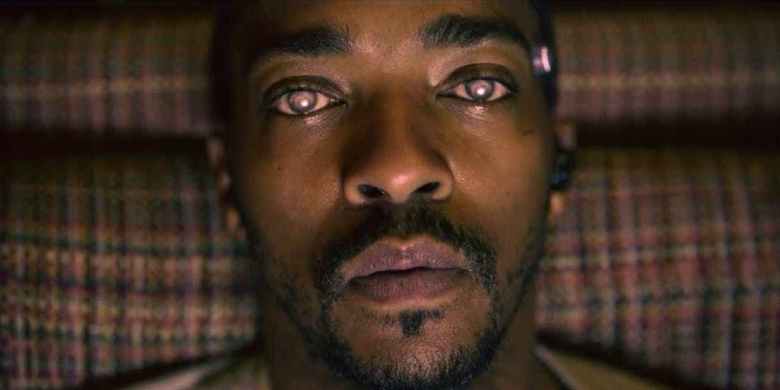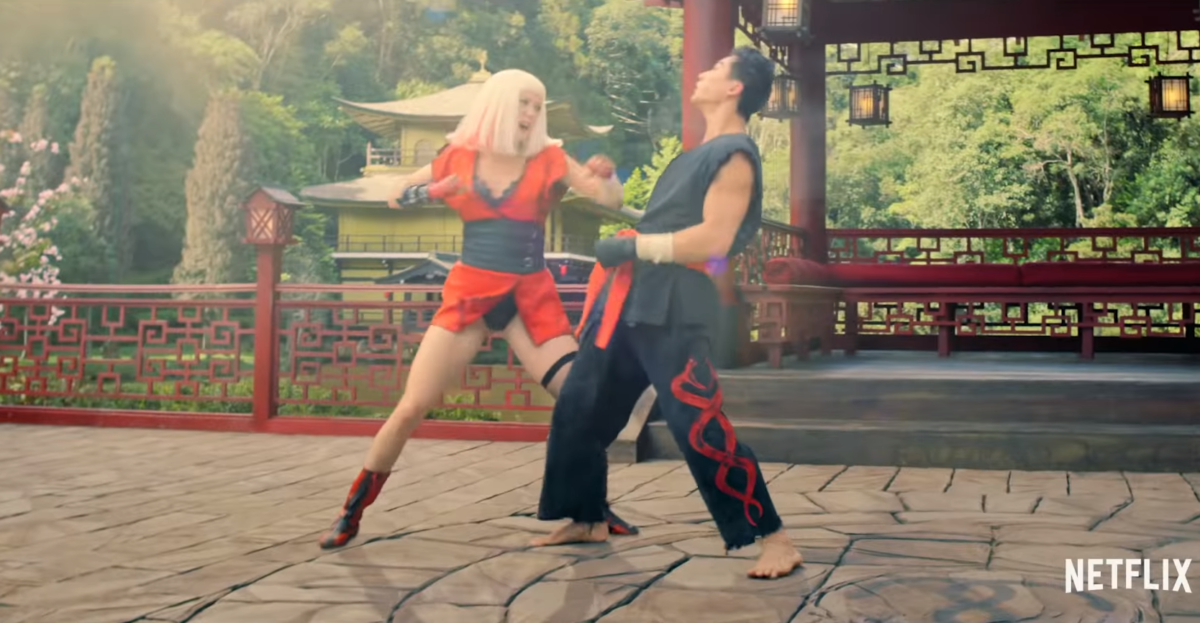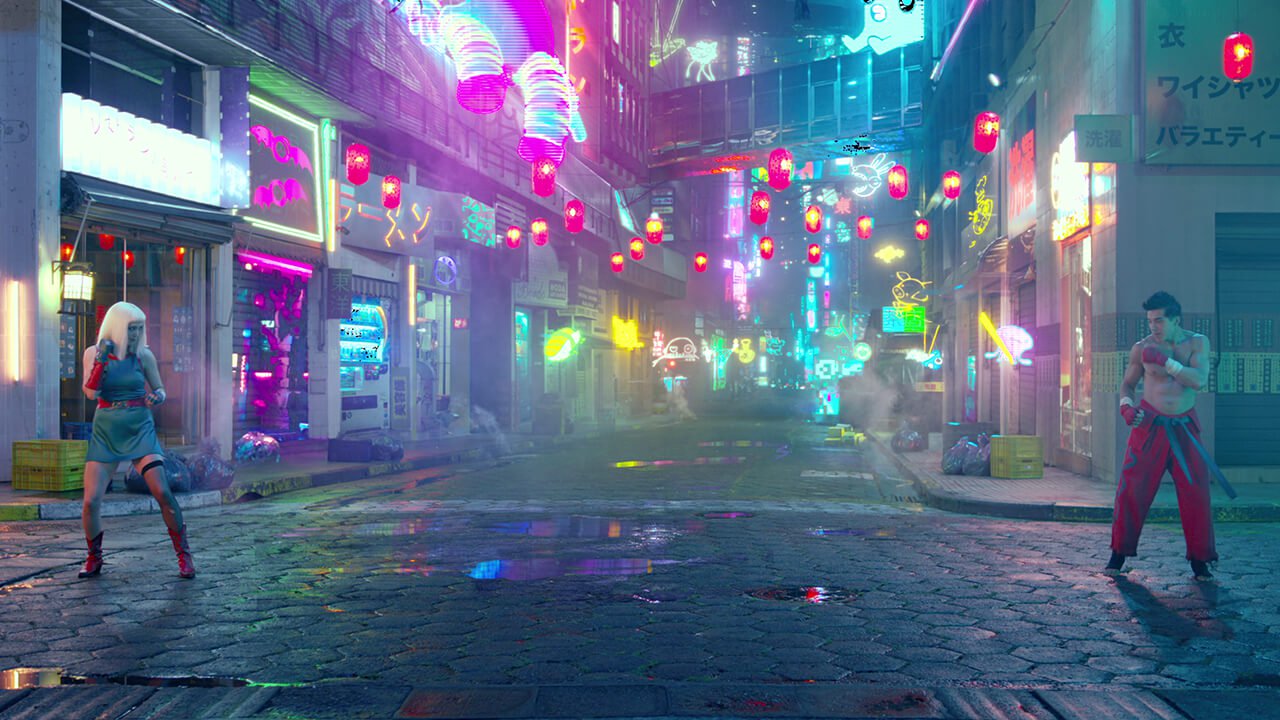
Charlie Brooker‘s Twilight Zone pastiche, Black Mirror, recently premiered its fifth season on Netflix. Unlike prior seasons, the most recent is considerably shorter in length, but boasts greater star power. “Bandersnatch” notwithstanding, this season also plays less gimmicky than prior seasons, much to both its benefit and detriment.
“Striking Vipers” stars Anthony Mackie and Yahya Abdul-Mateen II as Danny and Karl, respectively. We first meet them when they’re at a double-date in their mid-20s; Danny flirts with Theo (Nikki Beharie), pretending that they are meeting for the first time, when in fact they’ve been dating for some time. When we first re-encounter our cast, it is some 11 years later: Danny has settled into married life with Theo, and together they have a son; Karl is a music producer living the city, and still lives a carefree, flirtatious life. It’s Danny’s birthday, and Theo invited Karl, as the two have not seen each other in some time, due mainly to their different lifestyles.
Karl gives Danny a video game implant: implanted directly to his brain via his temple, Danny’s able to essentially “Avatar” himself into the video game the two of them used to spend hours playing in their younger days, a Street Fighter pastiche called “Striking Vipers” But once inside the game, Danny and Karl…looking, moving, looking, and sound like their respective game characters, Lance (Ludi Lin), and Roxette (Pom Klementieff)…unearth some other possibilities of the gaming system, and begin a psuedo-affair within the game. This updated version of “Striking Vipers” fully immerses the player, replicating their physical sensations perfectly, and opening up some interesting possibilities.
One of the more interesting aspects of this episode was the breakdown of not only male expectations, but also online culture. Here, Danny and Karl enjoy at first a sexual relationship fully independent of their offline selves, but realize that soon they are more comfortable (and expectant) of their online trysts, at the cost of their real-life relationships. In real life, neither Danny nor Karl find themselves physically attracted to each other (the fact that both trusted each other enough to actually see for themselves shows how deep their bond is), with Karl himself stipulating that although he’d tried virtually every single permutation of sex with various characters and players, only playing with Danny “fits”, and goes on to further stipulate that “it isn’t a gay thing” (and truth be told, it really isn’t.
There’s a deeper conversation about desire — outside of sexual orientation — that is played with but never fully or satisfactorily explored.) And here, the idea of role-playing, and the potential sexual undercurrent therein, is played with as well: Danny and Theo role-play a first date the first time we meet them, and the roles that both Danny and Karl play as and with each other hint at current social trends, wherein online personas and online lives can be used to reflect, or mask, deeper desires (or fears, or traits, etc….) in an individual.
The only issue is that while this episode throws so many ideas at the audience –and there are a lot, such as the fetishization of Asian culture in fighting video games– it never fully embraces any particular one. It’s not that any of the ideas are half-baked, but that there are too many at play to ever be given full attention. The performances by both Anthony Mackie and Yahya Abdul-Mateen II went well beyond anything I’d have expected from either actor (although there were hints of the intense hyper-masculinity, and strange tenderness and camaraderie Mackie portrayed in The Hurt Locker).
The ending also lacked the sort of punch one usually expects from Black Mirror, particularly from the more romance-centered stories. Instead, while there is a sort of compromise reached among all the characters, there is still an element of misanthropy: each character, while allowing themselves a single night a year to indulge in fantasies, still lives the rest of the year knowing that there’s still some need going unfulfilled.
The performances are top-notch, the ideas presented within are fascinating (if slightly unfocused) and it’s topical enough to be able to understand why THIS was the sort of story being told. And that cinematography…director Owen Harris, and cinematographer Gustav Danielsson have managed to translate the camera movements and angles from fighting games seamlessly into a completely different medium. Kudos! 4/5 Pinball Machines.
Season 5 of Black Mirror is currently streaming on Netflix.
-J.L. Caraballo




